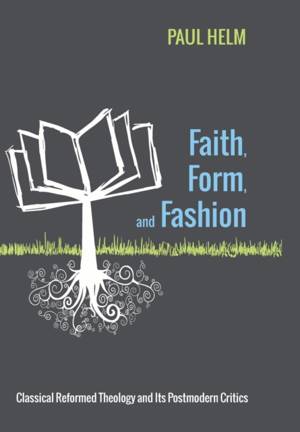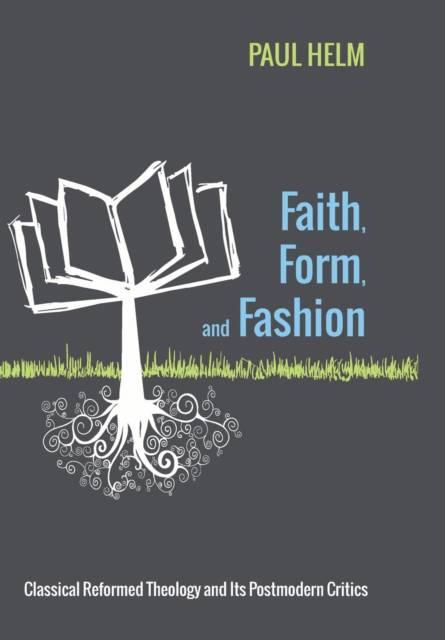
- Retrait gratuit dans votre magasin Club
- 7.000.000 titres dans notre catalogue
- Payer en toute sécurité
- Toujours un magasin près de chez vous
- Retrait gratuit dans votre magasin Club
- 7.000.0000 titres dans notre catalogue
- Payer en toute sécurité
- Toujours un magasin près de chez vous
Faith, Form, and Fashion
Classical Reformed Theology and Its Postmodern Critics
Paul Helm
Livre relié | Anglais
74,95 €
+ 149 points
Format
Description
This is a detailed examination of the theological innovations of Kevin Vanhoozer and John Franke. Each proposes that doctrinal and systematic theology should be recast in the light of postmodernity. No longer can Christian theology be foundational, or have a stable metaphysical and epistemological framework. Vanhoozer advocates a theo-dramatic reconstruction of Christian doctrine, replacing the timeless propositions of the "purely cerebral theology" of the Reformed tradition in favor of a theology that does justice to the polyphony of multiple biblical genres. Franke holds that theology is part of a three-way conversation between Scripture, tradition, and culture, with an uncertain outcome. This study shows that each of these proposals is based on misunderstanding and exaggeration, and that the case against foundationalism is unclear and unpersuasive. It is argued that Vanhoozer's appeal to revelation as divine speech-acts is not as radical as he thinks, and his epistemology is weak. In the hands of postmodernity, Christian theology abandons its exactness and the standards of care that are a notable feature of doctrinal constrictions. The book will be of importance to those with interest in Reformed theology or Christian theology more generally. It provides a clear assessment of the impact of the postmodern mindset on theology.
Spécifications
Parties prenantes
- Auteur(s) :
- Editeur:
Contenu
- Nombre de pages :
- 288
- Langue:
- Anglais
Caractéristiques
- EAN:
- 9781498205603
- Date de parution :
- 14-08-14
- Format:
- Livre relié
- Format numérique:
- Genaaid
- Dimensions :
- 152 mm x 229 mm
- Poids :
- 580 g

Les avis
Nous publions uniquement les avis qui respectent les conditions requises. Consultez nos conditions pour les avis.






